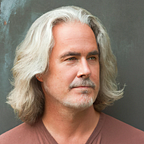Beyond Self-Interest
Why the Hive’s Well-Being Matters to Individual Bees
“That which isn’t good for the hive isn’t good for the bee” -Marcus Aurelius
The above quote is attributed to the Roman Emperor and Stoic philosopher Marcus Aurelius, from his writing “Meditations.” This quote has been interpreted in various ways, but one common understanding is that the well-being of the individual is inseparable from the well-being of the group. In other words, what benefits the community as a whole also benefits the individual members, and vice versa.
This idea of the interdependence of the individual and the group has implications for a range of issues, from social justice to environmental sustainability. When we act solely in our own self-interest, we may unintentionally harm others or the broader community. Conversely, when we prioritize the common good, we may find that our own needs and desires are better served as well. Let’s explore some examples of how this principle plays out in practice.
One example of how individual and group interests can become misaligned is in the context of natural resource use. Imagine a group of farmers who rely on a shared aquifer for irrigation. If each farmer pumps as much water as they need without regard for the needs of others, the aquifer may eventually run dry. This could harm the…
